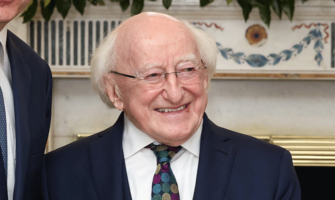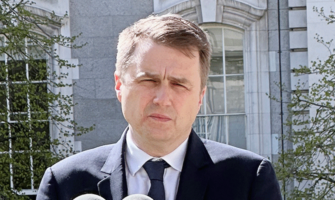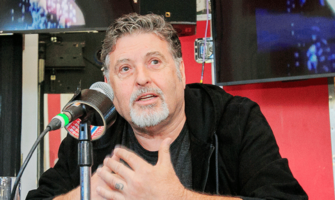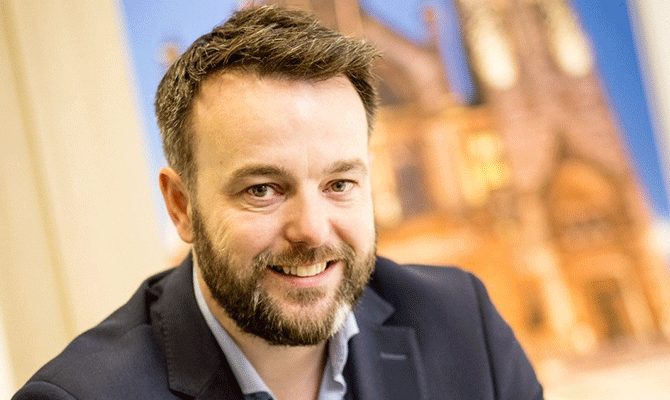
Colum Eastwood
LEO VARADKAR recently revived the old title of Fine Gael, the United Ireland Party, in the introduction to the party’s policy on the north. The first sentence in the FG document, entitled Northern Ireland and the future of our shared island, says: “Bunreacht na hÉireann affirms our national aspiration for territorial unity. Fine Gael, the United Ireland Party, shares that aspiration.” But FG’s new appetite for national unity and Vlad’s occasional republican soundbites have as much to do with outflanking Fianna Fáil and leader Micheál Martin’s effort to reinvent himself as the new Jack Lynch.
The background to much of this is the growing move towards unity as evidenced by Ireland’s Future, the call for a border poll, and wider demographic and economic factors. But it also has a lot to do with the abandonment of the SDLP by Martin’s FF after years of cultivation of that party by Brian Cowen and Bertie Ahern.
But while back in 2011 Martin promised moves towards Irish unity via a white paper on a united Ireland, he then spent a decade doing precisely the opposite, hollowing out his republicanism with the zeal of an apostate. He occasionally repeated these republican pledges about moves towards a united Ireland before eventually ’fessing up with a party statement in 2018 that said “discussions now about a united Ireland are premature”.
At the same time, parallel discussions and significant declarations about unity between FF and the SDLP, as well as the party creating its own structures in the north – a merger of the two parties was even mooted – also suffered, firstly from neglect and disinterest and secondly from Martin’s conversion to revisionism.
In 2018 Éamon Ó Cuív and senator Mark Daly were sacked from the front bench when they turned up in Omagh to nominate FF national executive member Sorcha McAnespy in the north’s impending local elections, despite an earlier ard fheis mandate to stand in such elections.
Last year, SDLP leader Colum Eastwood, having been repeatedly treated like a spurned mistress by Martin, told members that his party’s three-year “partnership” with FF was at an end. Since then, Martin sounds like a poor man’s Eoghan Harris whenever he discusses the north.
Simultaneously, Vlad was making united Ireland noises as he moved into the large space vacated by Martin and FF, along with FG members such as junior minister Neale Richmond and Dún Laoghaire councillor Lorraine Hall. These were not coincidental, spontaneous actions by either politician and both have given support to advancing towards a border poll, moves that were not made independently of their leader.
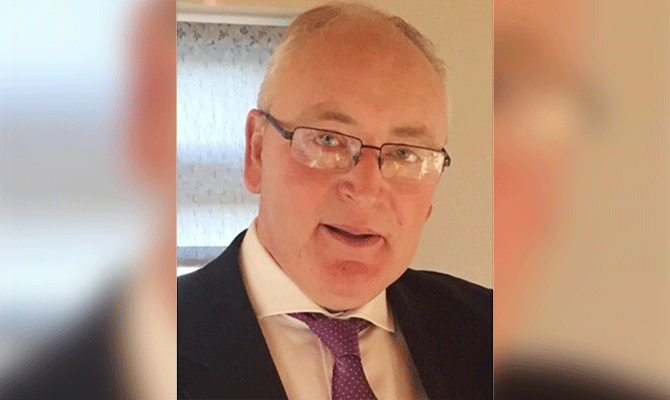
John Reilly
Vlad and his colleagues recognise that Martin has left a gap in the market in these republican times and are seeking to exploit it.
Last February the Irish News suggested that FG and even Labour were looking to set down roots in the north in an effort to avoid being left behind when a border poll and negotiations about a united Ireland become a reality. Such foresight – so lacking in FF – anticipates the new political chess board in a united Ireland in the not-so-distant future.
As far back as 2019 Vlad announced the creation of the Northern Ireland Engagement Group which, he said, would increase the party’s presence in the north. The group is chaired by Louth TD Fergus O’Dowd. Not much has been heard of this group but, in the last 12 months or so, its members – including FG councillors along the border – have been liaising with their counterparts in the SDLP. A leading member of this initiative is John Reilly, an FG councillor in Dundalk-Carlingford.
The group insists on spreading its contacts across as many northern parties as possible but the reality is that the main object of its affections is the SDLP, now on the rebound from FF and politically vulnerable to the blandishments from Vlad and his opportunist colleagues.
Watch out for SDLP councillors and activists canvassing alongside FG candidates in the local elections ‘down here’ next summer, as such comradeship and solidarity is anticipated in the first flush of political courtship now blossoming across borders and parties.
The brutality of Martin’s heartless rejection of Eastwood has been neither forgotten nor forgiven.

















